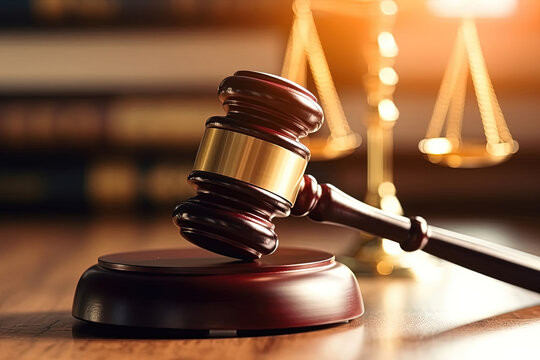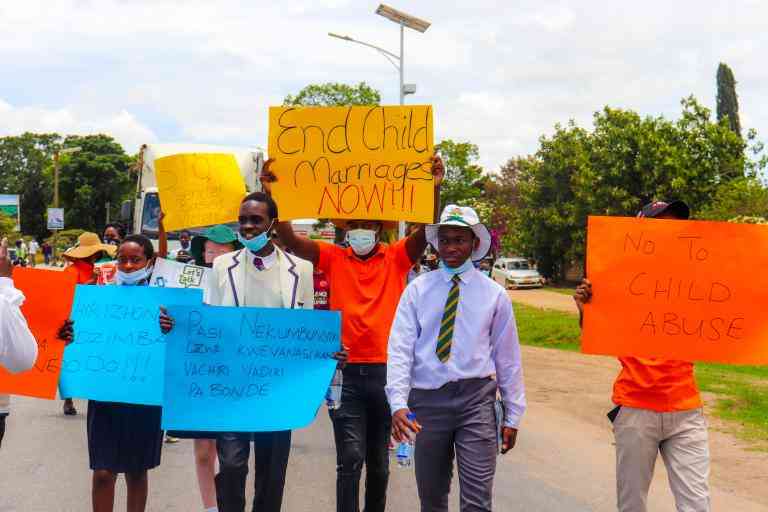
IT has been a while since I penned an article, but with a new year comes a renewed resolve to revive old habits — so here we are. I was thinking about what I would want to focus on in this article and the idea of holding public officials accountable came to mind. In this space, I will try and hold public officials to account from a legal perspective.
Let me be clear: This column is not about dabbling in politics nor is it a platform for personal attacks. My sole purpose is to deal with legal and policy arguments in holding officials to account. There are no sacred cows here; all actions are open to criticism in the pursuit of accountability. This is about principles, not personalities and my commitment remains firmly rooted in advancing good governance through the law.
What better way to start this column off than to review the controversial decision by President Emmerson Mnangagwa to “extend” the tenure of the Commander of the Zimbabwe Defence Forces, General Phillip Sibanda. The decision was communicated through General Notice 15 of 25 issued by the Chief Secretary to the President and Cabinet. Essentially, the notice made in terms of a clumsily and poorly cited provision “proviso (i) to the Defence (Regular Forces) (Officers) Regulations, 1988” claimed to extend General Sibanda’s appointment as Commander of the Zimbabwe Defence Forces until November 23, 2025.
To provide some context, General Sibanda turned 70 on December 24, 2024 and thus by operation of law, should have been retired then. The President, for reasons best known to him, only decided to extend General Sibanda’s service until November 2025 after he turned 70. This raises critical questions that hinge on two key issues: Whether the President possesses the legal authority to make such an extension and whether this action is permissible within the framework of the law, thereby rendering it valid.
The short answer to both questions is no. While the President, as Commander-in-Chief of the Defence Forces, may have the authority to extend certain service terms, there is no legal basis to suggest that this power includes extending a term beyond retirement. The General Notice referred to ‘proviso (i) of the Defence Regulations’ as the legal foundation and basis for this supposed extension. There is one small problem with that: The cited provision does not exist, so it is not immediately clear what provision was used to effect this extension. Interestingly, reliance on a non-existent provision usually has the net effect that the decision itself is flawed because it was taken in terms of a provision that simply does not exist.
Historically, when government wanted to effect changes to years of service for the armed forces, this was done through various amendments of the regulations. That is, respectfully, the correct manner to effect changes to retirement age conditions.
The principle of legality, which is a cornerstone of our constitutional democracy, mandates that all acts of public power must be rooted in the law. Extending an officer's tenure after their statutory retirement constitutes a retroactive alteration of their legal status — a practice not envisaged by the Defence Regulations. By a stroke of a pen, the President created a legal fiction of “reinstatement,” a concept that finds no basis in either the Act or the regulations. It is clear that the legal effect of retirement, triggered by the statutory age of 70, is automatic and final unless explicitly countermanded by lawful authority within the confines of the law.
The Defence Act and the regulations grant the President discretionary authority to extend an officer’s term of service. However, this authority is constrained by specific timing requirements: Any extension must be granted while the officer is still in active service. The regulations make no provision for “unretiring’ or reinstating a retired officer, which is effectively what the President has attempted to do in this instance.
- Electoral violence looms: ZPP
- Zimbabwe’s 2023 elections: how to judge candidates’ social protection promises
- Letter from America: Is former president Donald Trump a hero or villain?
- Chidzivo, Tarakinyu clinch Kabag honours
Keep Reading
Post-retirement extensions fall outside the scope of lawful presidential authority and are at risk of being deemed ultra vires — that is, beyond the powers legally conferred. By issuing the extension after General Sibanda had already retired, the President exceeded the permissible boundaries of executive discretion, rendering the decision legally questionable. This situation is particularly unfortunate as it places General Sibanda, a highly decorated and respected general, in an unenviable position.
The irregularities surrounding his extension detract from his distinguished career, casting unnecessary doubt on his legacy and on the credibility of the office that authorised the extension.
The retroactive “reinstatement” deserves further mention here. Retroactivity in law is generally permissible only where explicitly authorised by legislation. The Defence Regulations do not explicitly or impliedly provide for retroactive extensions of service.
By seeking to extend General Sibanda’s term after his retirement, the President effectively sought to reverse a legal status already conferred by operation of law. If the President indeed has the powers to extend a term of service, then the correct period for him to do so would arguably be before the consequence of the operation of law takes effect.
Once the retirement kicks in as it did with General Sibanda on midnight of December 24 2024, the President cannot undo the consequence of what the law effectively did. To make this simpler, on December 24, 2024 when the General turned 70 by consequence of the legal framework, he reached the age of retirement and was thus retired as such. What the President then purports to have done, is to reverse the operation and consequence of the law by a government notice. This is, respectfully, bizarre and not procedurally sound. Regulations are not undone by publication of a mere government notice.
In interpreting the Defence Regulations, the maxim expressio unius est exclusio alterius (the expression of one thing is the exclusion of another) becomes instructive.
The silence by the regulations must be interpreted as an intentional exclusion, reinforcing the argument that the President lacks the authority to act in this instance.
Another theory that guides the interpretation of legislation and subordinate legislation is purposive interpretation where one considers the intention of the legislature and the purpose of a statute. A purposive interpretation of the relevant Defence Regulations reveals their underlying intent: To ensure orderly succession within the Defence Forces while maintaining institutional integrity. These post-retirement extensions subvert this purpose, creating institutional stagnation and undermining the credibility of the military’s leadership renewal processes.
Over and above the concerns raised above, the decision sets a dangerous precedent, normalising the circumvention of statutory and constitutional provisions for political expediency. This undermines governance standards and weakens the accountability mechanisms intended to guide executive decision-making.
The general’s legitimacy now teeters on the edge because of an unnecessary overreach by the executive. The President still has a chance to right this wrong, but whether he will is another question.
This column is here to ensure actions like these face the scrutiny they deserve. Until next time, let’s remain vigilant in holding those in power to the standards they owe us all.
Paul Kaseke is a legal advisor, commentator, policy analyst and former law lecturer with the Wits Law School, Wits Business School. IIE MSA (formerly Monash South Africa) & Pearson Institute of Higher Education (formerly Midrand Graduate Institute). He currently lectures at Wits Plus — the part time studies’ unit at Wits. He serves as senior managing partner and current group chairperson of AfriConsult Firm. He writes in his personal capacity. You can give him feedback via email: [email protected] or follow him on Twitter @paulkasekesnr.











